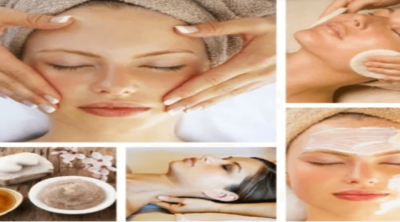
Topical hyaluronic acid is commonly used for skin care. In order to learn more about its benefits and side effects, read on…
Hyaluronic acid or hyaluronan is a kind of non-sulfated polysaccharide, which is available in most of the body tissues. Hyaluronic acid (HA) is predominantly present in neural, epithelial and connective tissues as well as heart valves, joints and bone cartilage of the body. It plays an important role in the process of cell migration and cell proliferation. An average person weighing 60 kg has around 13g of hyaluronic acid in his body. Nearly one third of the entire amount of hyaluronic acid is utilized by the body everyday.
Along with being useful for healing process that goes on inside the body, hyaluronic acid also has a lot of topical uses. An extremely important component of skin, hyaluronic acid is used by the body for skin tissue repairing and rebuilding. Topical hyaluronic acid on the other hand, is used for the same purposes. Regular usage of products that contain hyaluronic acid increases resilience of the skin tissues. Skin care products that contain hyaluronic acid are loaded with anti aging and anti wrinkle properties, that are said to have many positive effects on the skin.
Benefits and Uses
Considering its anti aging properties, uses of hyaluronic acid are varied, from skin creams to skin serums and from hyaluronic acid injections to hyaluronic acid supplements. As one might guess, hyaluronic acid is beneficial for people who have a persistent problem of very dry skin. Hyaluronic acid has moisturizing effects and hence it is effective for reduction of fine wrinkles and dry skin spots.
The biggest benefit of hyaluronic acid is that it retains skin moisture and keeps the skin surface hydrated for a longer period of time. Hence, it is found pretty effective for overall skin care and for all skin types. Along with repairing the existing fine lines and wrinkles, hyaluronic acid also stops appearance of newer marks, acne scars and wrinkles that appear due to a number of reasons.
Apart from beauty regimen, hyaluronic acid products are used for healing wounds, scars and cuts that are caused due to various kinds of physical traumas. Hyaluronic acid products are used as an ideal topical solution for skin irritation and inflammation which might be allergic reactions. Hyaluronic acid benefits certain other health conditions like rheumatoid and osteoarthritis as well. Since hyaluronic acid is also available in the bone cartilage, people with various types of arthritis find huge relief in topical as well as intravenous uses of hyaluronic acid.
Side Effects and Precautions
Considering all the above mentioned positive effects of hyaluronic acid, many leading beauty product brands use it as a basic ingredient for most of their skin care products. As far as topical uses of hyaluronic acid are concerned, it is important to get to know about their side effects that are evident after prolonged usage or low quality of such creams and lotions. Topical products that contain hyaluronic acid are safe to use, when they are purchased according to the purity and safety standards which are set by skin care experts.
For instance, always choose hyaluronic acid topical products which are free from fillers and irritants that are harmful for skin. Checking the amount of hyaluronic acid in the topical products that you are buying is also important. Various skin care products contain varied amounts of hyaluronic acid. Typically, it is available in as less as 1% to as much as 75% of the entire products.
Hence, choose products that contain right amount of hyaluronic acid, which is suitable for your individual skin type. This check gets even more crucial for people who have the problem of sensitive skin. If you are allergic to topical products and various chemicals, then it is important that you consult a dermatologist before using products containing hyaluronic acid. As far as side effects of hyaluronic acid are concerned, one might experience mild to severe level of redness and skin irritation is extreme cases.
Hyaluronic acid is alleged to be involved in production of malignant tumors and it is not FDA certified for internal usage as well. However, limited amount of topical usage of hyaluronic acid is said to be harmless. Upon experiencing any of allergic reactions, swelling or redness with hyaluronic acid products, one must immediately stop using them and inform a dermatologist. As far as the question of using topical hyaluronic acid during pregnancy is concerned, you need to consult with a dermatologist and an ob-gyn first.


